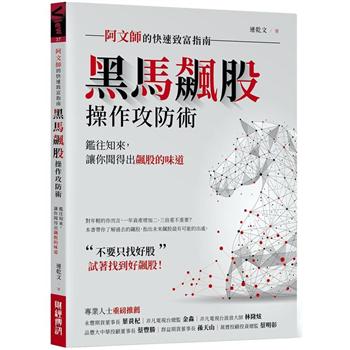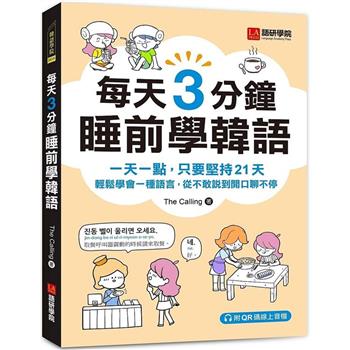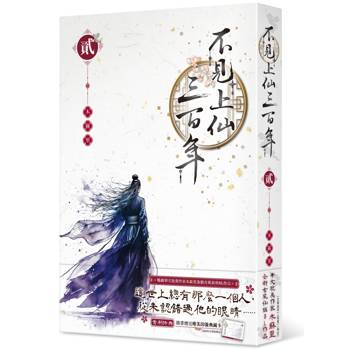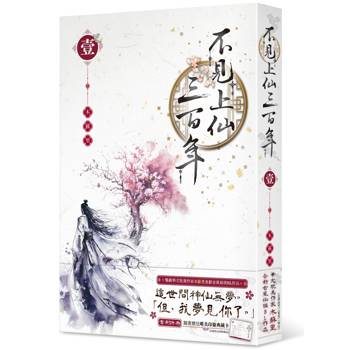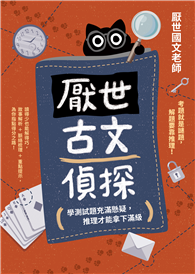鑑於印度大學目前使用的華語教材相當老舊,且與印度的國情與文化有極大差距,故印度臺灣華語教育中心決議為印度學習者編寫一套國別化華語教材。
本書以幽默有趣的故事、文化對比的角度介紹臺灣和印度的文化特色。主要學習對象為在印度大學學習華語第二年、華語程度A2 - B1的印度學生,以文化比較與語言學習為主軸,設計在地化的教材。每一課分為七部分:課程目標及課文屬性、課文對話、短文、生詞、語法、跨文化延伸和語言任務。
希望此書在印度華語教材和臺印文化交流上扮演領頭羊角色,期盼拋磚引玉,能專門為在印度學習華語的學習者編寫更多元、更適性的華語教材。
Given that the Mandarin textbooks currently used by Indian universities are pretty outdated, bearing a large gap with the Indian culture and condition of the nation, TEC has been proactive in advancing pedagogies and teaching materials.
Incredible Mandarin is targeted at students learning Mandarin Chinese for the second year at Indian universities or those with Chinese skills between CEFR A2 and B1 levels. This book is designed with localized content aiming at cultural comparison and language learning for communication. The ten lessons are threaded by an interesting story, introducing cultural highlights of Taiwan and India through cross-culture comparison. Each lesson is divided into seven parts: Lesson Objectives and Topics, Dialogues, Readings, Vocabulary, Grammar, Cross-Cultural Extension, and Language Tasks.
With this book, we have finally started the trial and set foot on the expedition of language education materials for Indian learners. For an even better cross-cultural communication between India and Taiwan, we sincerely hope this textbook would lead more scholars to join us in developing and providing more diverse and adaptive teaching materials for learners in India.
| FindBook |
有 8 項符合
Incredible Mandarin 不可思議華語的圖書 |
 |
Incredible Mandarin不可思議華語 作者:印度臺灣華語教育中心-國立清華大學計畫辦公室/ 策劃;張箴/劉殿敏/陳慶華/編寫 出版社:五南圖書出版股份有限公司 出版日期:2022-01-10 |
| 圖書選購 |
| 型式 | 價格 | 供應商 | 所屬目錄 | $ 378 |
中文 |
$ 399 |
中文書 |
$ 399 |
聽力/口說 |
$ 399 |
中文 |
$ 399 |
語言學習 |
$ 399 |
Others |
$ 399 |
語言 |
$ 420 |
華語教材 |
|---|
| 圖書館借閱 |
| 國家圖書館 | 全國圖書書目資訊網 | 國立公共資訊圖書館 | 電子書服務平台 | MetaCat 跨館整合查詢 |
| 臺北市立圖書館 | 新北市立圖書館 | 基隆市公共圖書館 | 桃園市立圖書館 | 新竹縣公共圖書館 |
| 苗栗縣立圖書館 | 臺中市立圖書館 | 彰化縣公共圖書館 | 南投縣文化局 | 雲林縣公共圖書館 |
| 嘉義縣圖書館 | 臺南市立圖書館 | 高雄市立圖書館 | 屏東縣公共圖書館 | 宜蘭縣公共圖書館 |
| 花蓮縣文化局 | 臺東縣文化處 |
|
|
圖書介紹 - 資料來源:博客來 評分:
圖書名稱:Incredible Mandarin 不可思議華語
內容簡介
作者介紹
作者簡介
張箴 Felicia Zhen Zhang
Assistant Professor
Master Program of Teaching Chinese as a Second Language, Chinese Culture University, Taiwan
劉殿敏Diane Dien-Min Liu
Senior Chinese teacher at Mandarin Training Center of National Taiwan Normal University, Taiwan
陳慶華 Ching-Hua Chen
Lecturer
International Bachelor Degree Program, Chinese Language Center, National Tsing Hua University, Taiwan
編者簡介
陳淑芬 Shu-Fen Chen
Professor
Department of Chinese Literature, National Tsing Hua University, Taiwan
張箴 Felicia Zhen Zhang
Assistant Professor
Master Program of Teaching Chinese as a Second Language, Chinese Culture University, Taiwan
劉殿敏Diane Dien-Min Liu
Senior Chinese teacher at Mandarin Training Center of National Taiwan Normal University, Taiwan
陳慶華 Ching-Hua Chen
Lecturer
International Bachelor Degree Program, Chinese Language Center, National Tsing Hua University, Taiwan
編者簡介
陳淑芬 Shu-Fen Chen
Professor
Department of Chinese Literature, National Tsing Hua University, Taiwan
目錄
序一 Preface 1
序二 Preface 2
各課重點 Scope and Sequence
詞類表 Parts of Speech in Chinese
主要人物介紹 Introduction to the Main Characters
Lesson 1 印度我們來了 India, Here We Come!
Lesson 2 接風 Holding a Welcome Reception
Lesson 3 自由行 Self-Organized Tours
Lesson 4 熱鬧的排燈節 Lively Diwali
Lesson 5 去喝喜酒 Going to a Wedding Reception
Lesson 6 古蹟的故事 Stories of Ancient Monuments
Lesson 7 逛逛市集 Going to the Market
Lesson 8 養生的方法 Ways of Keeping Healthy
Lesson 9 伴手禮 Souvenirs
Lesson 10 歡送會 Farewell Dinner
附錄一 生詞索引 中—英
Vocabulary Index (Chinese-English)
附錄二 生詞索引 英—中
Vocabulary Index (English-Chinese)
附錄三 簡體字課文
Text in Simplified Characters
附錄四 跨文化延伸中文版
Cross-Cultural Extension in Chinese
序二 Preface 2
各課重點 Scope and Sequence
詞類表 Parts of Speech in Chinese
主要人物介紹 Introduction to the Main Characters
Lesson 1 印度我們來了 India, Here We Come!
Lesson 2 接風 Holding a Welcome Reception
Lesson 3 自由行 Self-Organized Tours
Lesson 4 熱鬧的排燈節 Lively Diwali
Lesson 5 去喝喜酒 Going to a Wedding Reception
Lesson 6 古蹟的故事 Stories of Ancient Monuments
Lesson 7 逛逛市集 Going to the Market
Lesson 8 養生的方法 Ways of Keeping Healthy
Lesson 9 伴手禮 Souvenirs
Lesson 10 歡送會 Farewell Dinner
附錄一 生詞索引 中—英
Vocabulary Index (Chinese-English)
附錄二 生詞索引 英—中
Vocabulary Index (English-Chinese)
附錄三 簡體字課文
Text in Simplified Characters
附錄四 跨文化延伸中文版
Cross-Cultural Extension in Chinese
序
序一 Preface I
In 2009, I was very honored to arrange the former Minister, Dr. Ching-Ji Wu’s visit to India. It was the first time a minister from the Republic of China (Taiwan) visited India.
The former Minister, Dr. Wu and the former Minister of the Ministry of Human Resource Development, India (MHRD) had a meeting. Minister, Mr. Kapil Sibal asked Taiwan to send 10,000 Mandarin Chinese instructors to India. It was then we understood how broad a future Mandarin Chinese language education has in India.
After returning to Taiwan, National Tsing Hua University (NTHU) officially accepted the mission from the Ministry of Education (MOE), Taiwan, to establish Taiwan Education Centers in India (TEC). In the very beginning, I tried to contact sister universities of NTHU in India; however, the negotiation process was very challenging, as most were national institutions and there were no formal diplomatic relations between Taiwan and India. It wasn’t until 2011 that Mr. Rawat, former Representative of India in India-Taipei Association (ITA) then, introduced a private university, “O.P. Jindal Global University”, to establish the first Taiwan Education Center in India, known as TEC-JGU. In addition, it was very lucky that, in Dubai Education Fair, I happened to come across the son of the Founder of Amity University, the largest private university in India. This has led us to set up the second TEC in India, also known as TEC-Amity.
After two TECs in private universities in India have been established, with the help of Prof. T.C.A. Rangachari in Jamia Millia Islamia (JMI), the first TEC in national university was founded in May 2013, also known as TEC-JMI. Professor Rangachari speaks fluent Mandarin Chinese which he acquired in the Republic of China before 1949. Professor Rangachari was the former Indian Ambassador to Germany and France In the same year, 2013, the 4th TEC was established in Indian Institute of Technology Madras (IITM), also known as TEC-IITM. If it wasn’t for the MoU of sister universities signed during the former NTHU President, Dr. Wen-Tsuen Chen’s, visit to India in 2009 this would not have been possible.During 2015 to 2017, NTHU has further established TEC in Jawaharlal Nehru University (JNU), SRM University (Sri Ramaswamy Memorial University, which was renamed as SRM Institute of Science and Technology, SRMIST), and Indian Institute of Technology Bombay (IITB). These three branches namely TEC-JNU, TEC-SRMIST, TECIITB.
Since 2011, one TEC has been established each year on an average (details shown in table 1). Later MOE suggested that we could slow down our pace. Nevertheless, Chitkara University contacted us in 2018, expressing that they would like to support NTHU to set up a TEC in their campus and offered to cover all the expenses required. The 8th TEC was still much supported by MOE in Chitkara University, and hence, TEC-Chitkara was established in 2019. The Ministry of Education altered its previous policy and acceded to NTHU to continue establishing TEC in India. In this regard, the 9th TEC in India in SRM University, Andhra Pradesh, was established, also known as TEC-SRMAP.
The establishment of TEC assists institutions around Taiwan to collaborate with the Indian universities. With the education of Traditional Chinese characters, it was possible to introduce Taiwanese culture to Indian students and helps them to have better understandings of Taiwan. The Indian-Taiwan bilateral collaboration has been fruitful with the partner universities’ support in providing our instructors’ staff quarters and other necessities.
After running TEC for about 5 to 6 years, we came to notice that there are no books from Taiwan in India. For one, the Indian government protects the press and publication industries in India. For another, without formal diplomatic relations between Taiwan and India, it is very difficult for publishers to issue Taiwanese books to India. Moreover, though there are many great Mandarin Chinese language teaching materials by Taiwanese publishers, they are not designed for Indians. We think learning a language requires adaptive materials designed based on learners’ cultural background. With the support from MOE, we have organized three “India-Taiwan Bilateral Forum on Mandarin Chinese Teaching Materials for Indian Learners” since 2017. We have gathered opinions and requirements on the needs of Mandarin Chinese teaching and learning from institutions around India.
This provides us much confidence in developing a new Mandarin Chinese learning material dedicated to Indian. At the same time, we came to understand that exporting books to India cost tremendously. Consequently, we decided to search for local publishers for printing, publishing and selling new material.
With years of sustained effort, we have gained sole license to edit, print, publish and sell the best-selling Mandarin Chinese textbook, A Course in Contemporary Chinese, in Taiwan edited by National Taiwan Normal University (NTNU). It took us a year and a half to acquire an exclusive license from “Linking Publishing Company” to publish this textbook in India. Thanks to the Founder of Yaoindia, Ms. Chih-Wei Yu, who introduced us to “Sanctum Books” to handle related works of printing, publishing and sales. Before this, Taiwan and India had no such international collaboration. The printing quality is exquisite and the price is also tailored to the Indian market. This textbook A Course in Contemporary Chinese is now on sale on Amazon India online. All TEC now are using this textbook as official teaching and learning material. We hope this material will become a popular choice among teachers and learners of Mandarin Chinese language in India.
|
